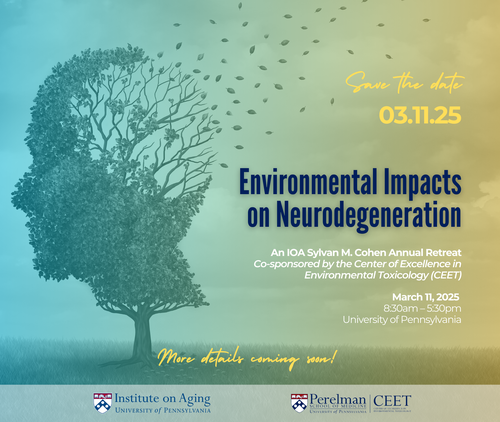Credit: Penn Medicine News
To better understand how day-to-day exposures to chemicals earlier in life can contribute to conditions like Alzheimer's disease later on, researchers are examining four decades worth of data from a 5,000-person sample looking at blood and urine tests to measure levels of pesticides, metals, and other elements and comparing those with MRI scans and cognitive tests to determine what could potentially contribute to increased risk of neurological disorders. The research, which is a collaboration between investigators at the Perelman School of Medicine at the University of Pennsylvania, Northwestern University, University of California San Francisco, and Emory University, is funded by an $11 million National Institutes of Health (NIH) grant.
Read the full Penn Medicine News Release here.
“We are striving toward understanding the origins of increased risk of Alzheimer’s disease and related dementias. If there’s an environmental link, we could encourage reduction of environmental exposures in early- and mid-life, decades before cognitive decline and other dementia symptoms,” said the study’s principal investigator, Aimin Chen, MD, PhD, a professor of Epidemiology at Penn. “The findings may also inform environmental health policymaking to potentially reduce instances of brain aging disorders.”
Dr. Chen is among the list of speaker's at the IOA's upcoming Sylvan M. Cohen Annual Retreat on the topic of "Environmental Impacts on Neurodegeneration," co-sponsored by the Center of Excellence in Environmental Toxicology (CEET).
Save the date: March 11, 2025
The Sylvan M. Cohen Annual Retreat & Poster Session
Co-sponsor: Center of Excellence in Environmental Toxicology
Topic: Environmental Impacts on Neurodegeneration
8:30am - 5:30pm | Biomedical Research Building


